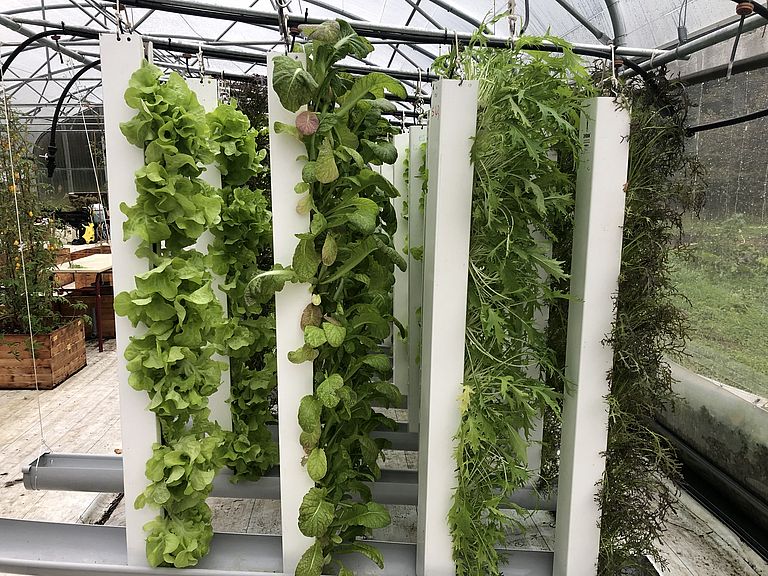What the circular economy can learn from marine food webs
GEOMAR researchers analysed food webs to help manage biowaste more sustainably
Cities import most of the food consumed by their inhabitants from outside their administrative borders and use energy that has travelled hundreds of kilometres. Moreover, they export biodegradable waste away from its production areas in order to ease treatment and valorisation. While this linear structure of the traditional waste management presents some advantages, it also requires investments into technological solutions, as well as extensive collection and transport systems leading to economic, social and environmental impacts such as noise, traffic and fuel consumption.
Within the framework of the “A Decentralised management Scheme for Innovative Valorisation of Urban Biowaste” (DECISIVE) project funded by the European Union, academic, public and economic actors explored the possibility of modifying this linear and centralized biowaste management towards a decentralised, circular and local management. Their new model relies on urban agriculture as a major player who is able to close the cycle of organic matter. At demonstration sites in Lyon (France) and Dolina (Italy), the proposed approaches as well as new technologies were tested. A decision support tool was developed to help actors identify the ideal location and size of the collection and reuse network.
Researchers from GEOMAR Helmholtz-Centre for Ocean Research Kiel contributed methods borrowed from the modelling of marine food webs. “There are in fact analogies between carbon circulation in natural communities and biomass exchanges in a technological system such as the one of biowaste generation and processing in our daily lives”, Dr. Marco Scotti, marine ecologist at GEOMAR explains. “Actors exchanging energy or materials form complex systems that obey to the rules of thermodynamics. Networks represent a universal language for describing their structure and functioning. In the past, we already took advantage of similarities between human systems and food webs to model the European natural gas pipeline network.”
The algorithms proposed by GEOMAR were able to quantify the extent of recycling as well as the stability and resilience of biomass flow networks. Based on this, suitable models were developed to represent food webs on the one hand and networks depicting energy or matter exchanges in human settlements on the other. The comparison revealed striking differences: “The material cycling in the food webs is much higher than in human systems. Human systems resemble linear chains that are not very efficient in processing biomass and do not really reuse it”, says Dr. Scotti. Food webs are stable because of their energy circulation: Species feed on diverse prey and shift their diets when certain resources become scarce. The linear structure of traditional waste management systems works well under normal conditions, but risks to collapse when some of their elements fail. “Although the comparison between a natural system and one created by humans might seem surprising, there is actually a lot to learn for us. Natural food webs are able to inspire us when it comes to shifting our biowaste management systems towards a circular economy mode and making them more sustainable.”
Project funding:
The project A Decentralised management Scheme for Innovative Valorisation of Urban Biowaste (DECISIVE) received funding from the European Union’s Horizon 2020 research and innovation program under grant agreement No 689229.



